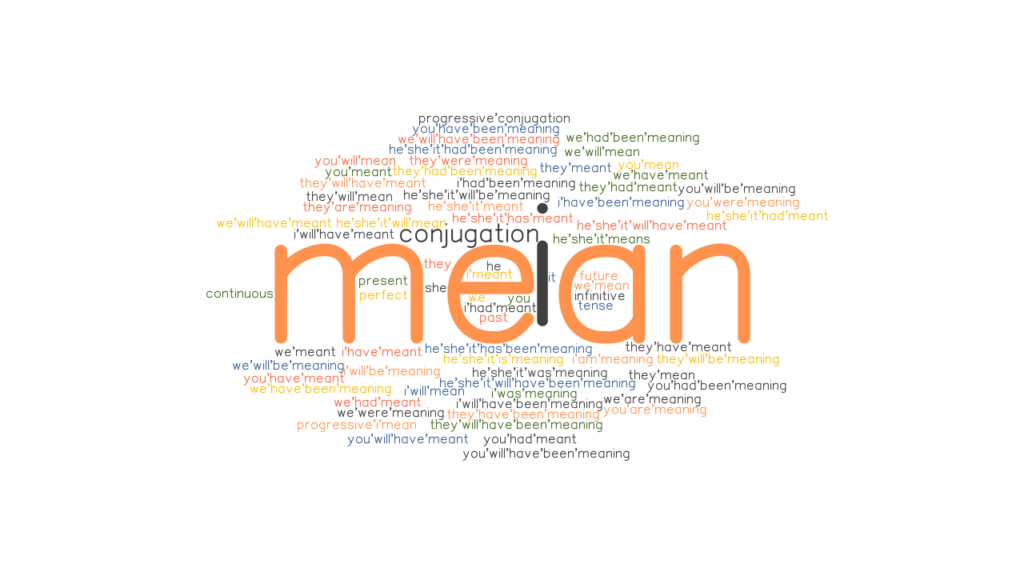
Mean Past Tense Verb Forms, Conjugate MEAN
to talk about the past to talk about hypotheses (when we imagine something) for politeness. There are four past tense forms in English: We use these forms: to talk about the past: He worked at McDonald's. He had worked there since July. He was working at McDonald's. He had been working there since July.

Past Simple Tense! Learn useful grammar rules to use the Simple Past Tense in English with
Verb tenses are changes or additions to verbs to show when the action took place: in the past, present, or future. The phrase verb tense is also used for grammatical aspects, which add more details about the duration or time an action takes.

Past Tense of Mean Meaned or Meant? (Pronunciation & Usage)
Most Common Irregular Verbs. The two most common irregular verbs in English are "be" and "have." These pages give more details about these two verbs: the verb "to be". the verb "to have". Here are the next 10 most common irregular verbs in English: see, say, go, come, know, get, give, become, find, and think.

MEAN Past Tense, Present, Future, Participle Form V1 V2 V3 V4 V5
What is the past tense of mean? The past tense of the verb "mean" is "meant", and the past participle is "meant". Verb Tenses Past simple — mean in past simple meant (V2) . Future simple — mean in future simple is mean (will + V1) . Present Perfect — mean in present perfect tense is meant (have/has + V3) .

Past Tense of Mean, Past Participle of Mean, V1 V2 V3 V4 V5 Form of Mean English Study Here
Grammarly Updated on March 28, 2023 The simple past is a verb tense that is used to talk about things that happened or existed before now. Imagine someone asks you what your brother Wolfgang did while he was in town last weekend. Wolfgang entered a hula hoop contest. He won the silver medal. Here's a tip: Want to make sure your writing shines?

Summary of different Tenses Verbs and tenses
If it's an irregular verb, the simple past tense is formed in all sorts of different ways. Here are some examples: break > broke. catch > caught. find > found. see > saw. You just have to learn them. Read more about irregular verbs (includes a list of the most common irregular verbs).
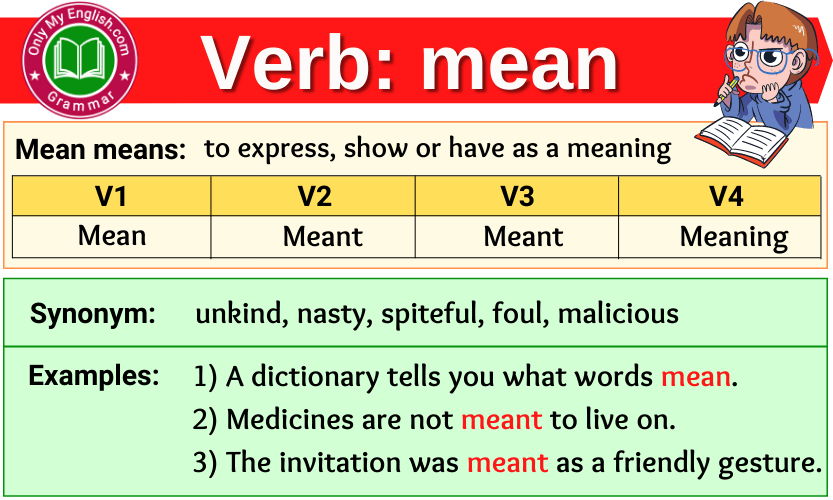
Mean Verb Forms Past Tense, Past Participle & V1V2V3
What is the past tense of the word "mean" The past tense (past participle) form of "mean" is "meant." The infinitive of the word form is "mean." The present participle form is "meaning." The past tense form is "meant" and past participle form is "meant." Understanding verb tenses The general grammar rules that govern past tenses are as follows.

100 Advanced Past Tense ENGLISH VERBS with Meanings + Example Sentences English Vocabulary
Updated on December 27, 2022 Irregular verbs are verbs that do not follow the normal patterns for tense and past participle. While most English regular verbs use the ending "-ed" for the past tense and participle forms, irregular verbs each have their own unique tense forms and past participles.

Verb Tenses ESL Grammar
Mean in Present Continuous (Progressive) Tense. Singular. Plural. I am meaning. We are meaning. You are meaning. You are meaning. He/She/It is meaning. They are meaning.
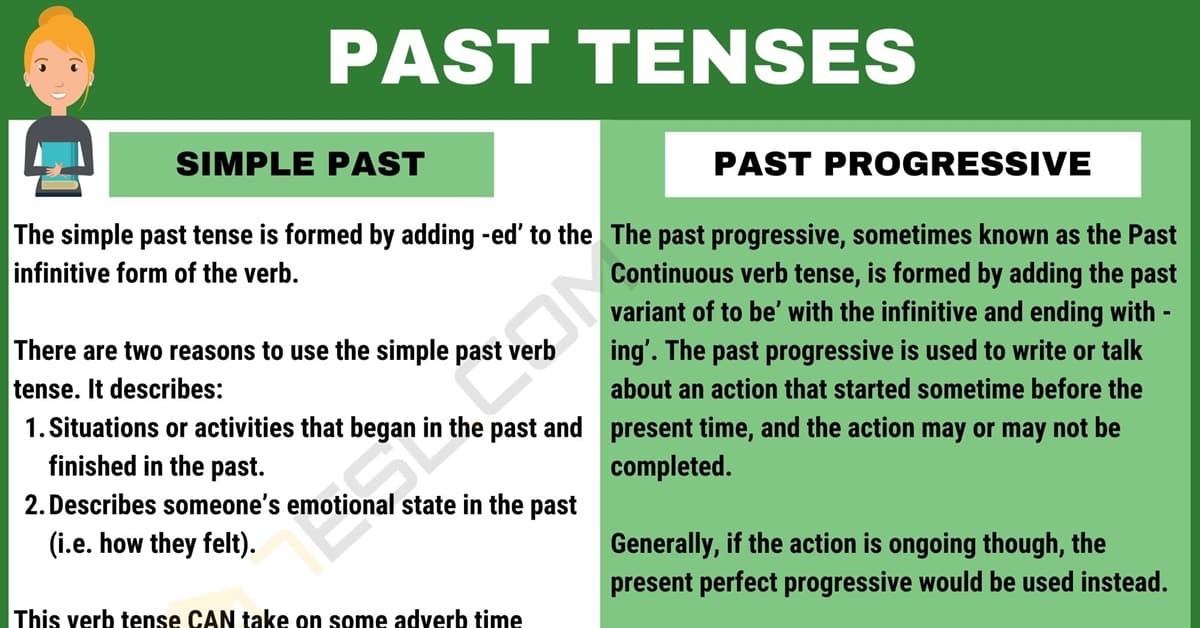
Past Tense Definition, Rules and Examples of Past Tenses Efortless English
Meant Meant is the past participle of the word mean. Mean verb forms V1 V2 V3 V4 Conjugation of Mean Simple / Indefinite Present Tense I mean it. He/She/It means it. You/We/They mean it. Simple Past Tense I meant it. He/She/It meant it. You/We/They meant it. Simple Future Tense I will/shall mean it. He/She/It will mean it.
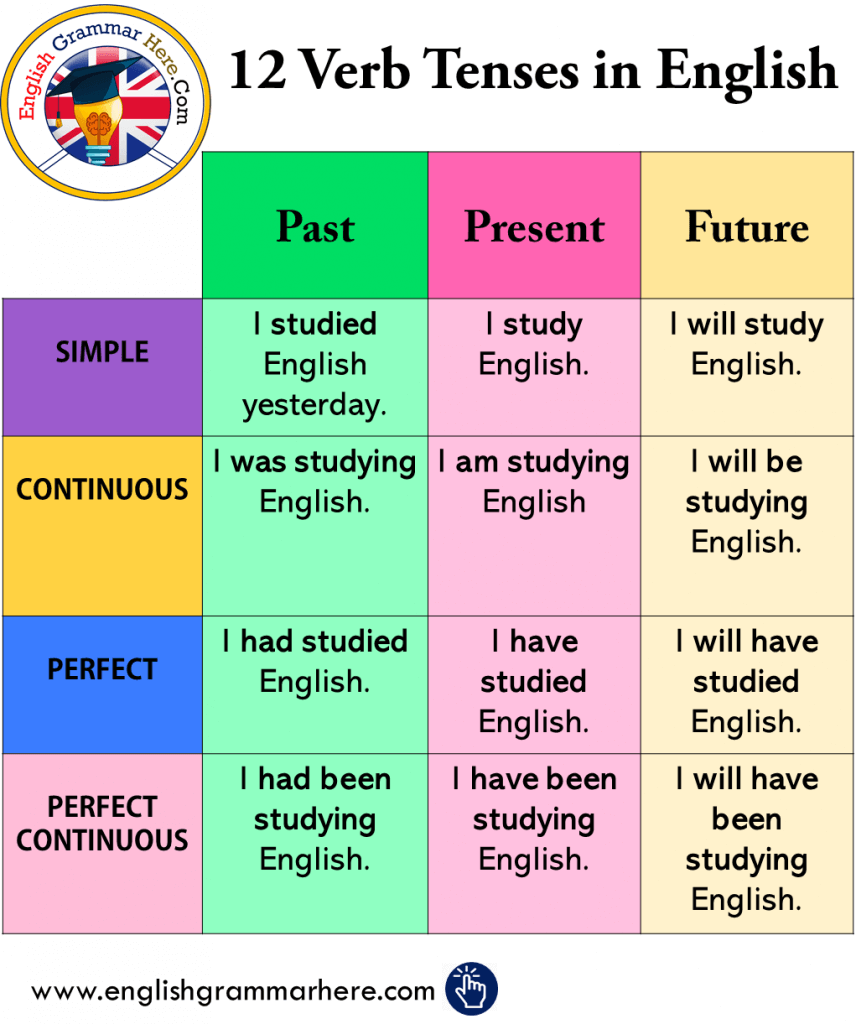
The 12 Verb Tenses Chart Explained ZOHAL
The verb 'mean' is an irregular verb. It is the kind of verb that does not follow a predictable rule (adding -ed ending) to turn it into past form. In this case, the past simple form of 'mean' is 'meant' (pronounced as MENT, roughly). I hope I have answered your question satisfactorily.
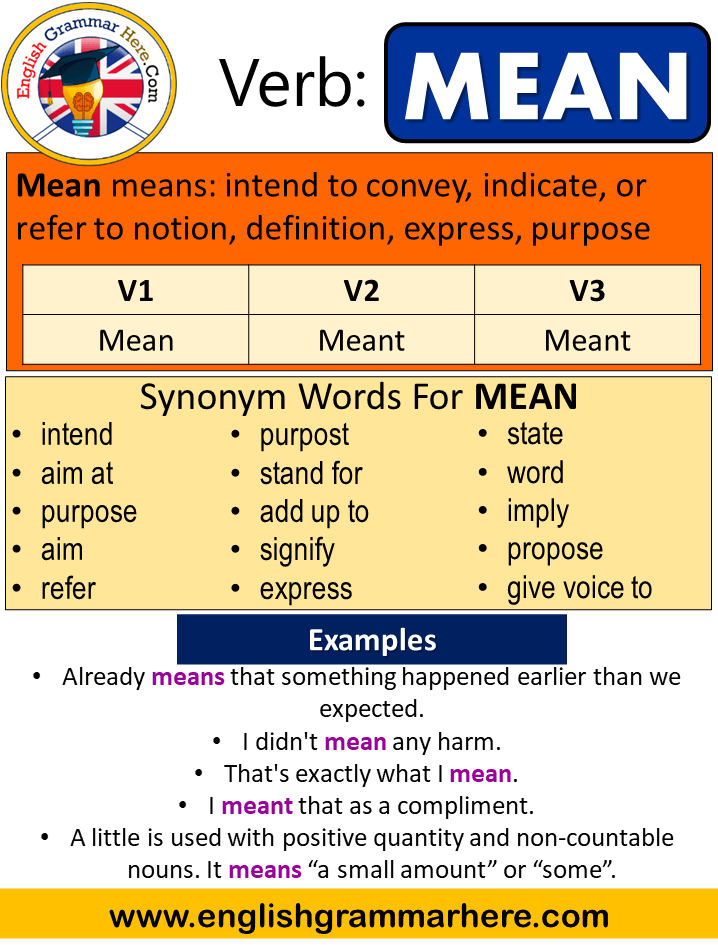
Mean Past Simple, Simple Past Tense of Mean, Past Participle, V1 V2 V3 Form Of Mean English
imply; stand for; think;. Infinitive to mean Preterite meant Past participle meant Model : burn Auxiliary : have, be Other forms: mean oneself / not mean Contractions Advertising Indicative Present I mean you mean he/she/it means we mean you mean they mean Preterite I meant you meant he/she/it meant we meant you meant they meant
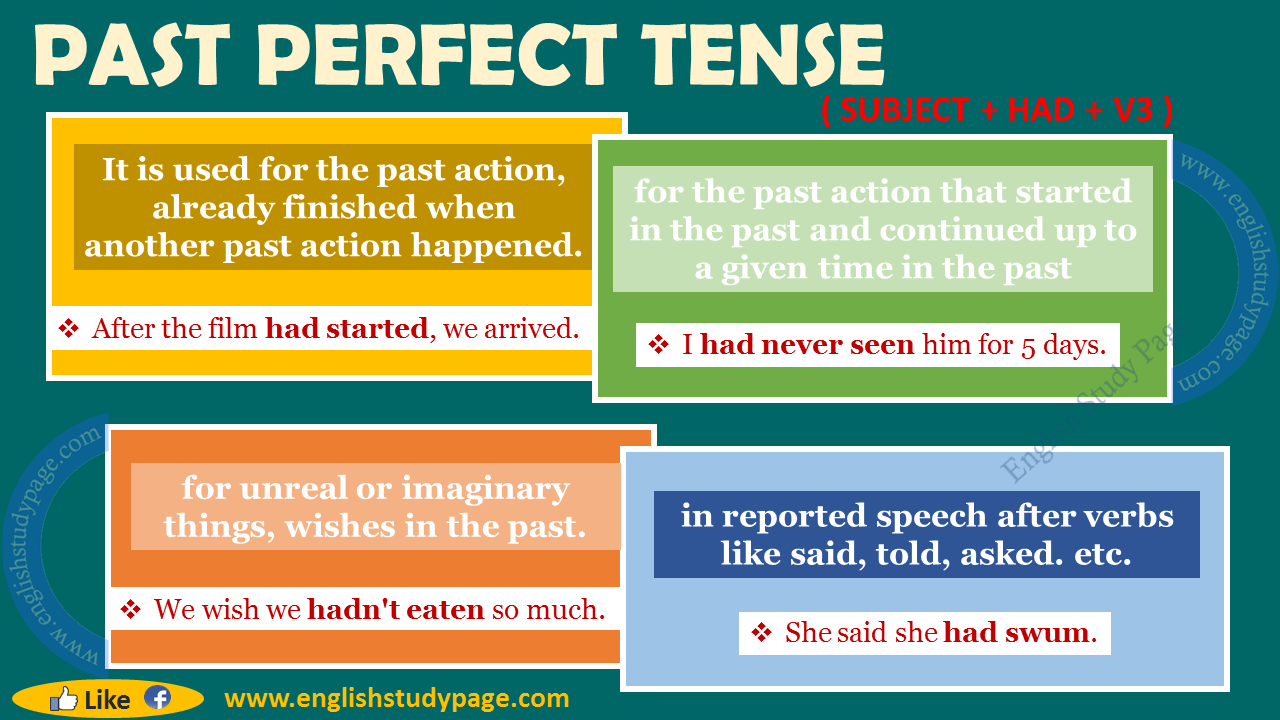
😝 Difference between past tense and past perfect tense. Past, Present, and Future Perfect Tenses
past tense of mean is meant. Mean verb forms Conjugation of Mean Simple / Indefinite Present Tense He/She/It means . I mean. You/We/They mean. Present Continuous Tense He/She/It is meaning. I am meaning. You/We/They are meaning. Present Perfect Tense He/She/It has meant. I have meant. You/We/They have meant. Present Perfect Continuous Tense

Lessons at NBS. Group 1. Lesson on September 17.
a : a verb tense expressive of elapsed time (such as wrote in "on arriving I wrote a letter") b : a verb tense expressing action or state in progress or continuance or habitually done or customarily occurring at a past time (such as was writing in "I was writing while he dictated" or loved in "their sons loved fishing")

Past Tense Of Mean, Past Participle Form of Mean, Mean Meant Meant V1 V2 V3 Past Tense of Mean
What Is The Past Tense Of Mean? In the English language, the past tense for mean is "meant". Because this word is an irregular verb, it doesn't follow the standard rule: adding "ed" at the end. Here are the most common forms of this verb: Let's check out this video for more details about "mean": What is The Past Tense of Mean? | Grammar Wiki

Mean v1 v2 v3 Archives EngDic
Table of irregular verbs - English Grammar Today - a reference to written and spoken English grammar and usage - Cambridge Dictionary